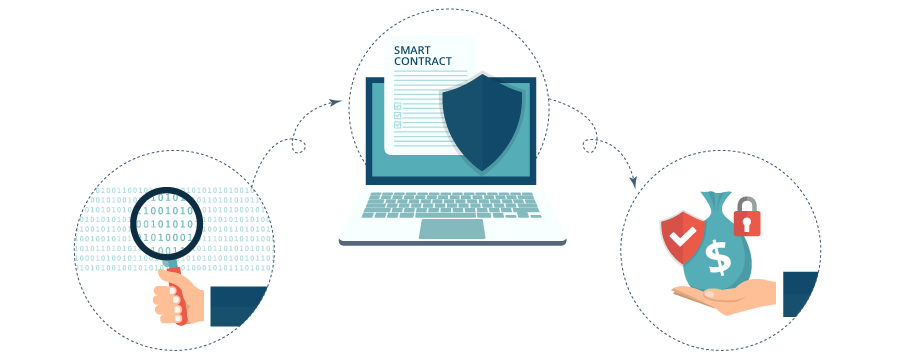Digitalization is currently conquering the insurance industry. Blockchain combined with ‘smart contracts’ is expected to revolutionize the insurance sector.
written by:
Anton Rykov
Product Manager, Qulix Systems
Digitalization is currently conquering the insurance industry. Blockchain combined with ‘smart contracts’ is expected to revolutionize the insurance sector.
What if in the future, it will be possible to unify data of all parties that are involved in a particular insurance claim, and to initiate immediate payouts to policyholders? It would mean there will be no more need for a central administrative unit responsible for data correctness control. In fact, it would enormously speed up claims processing.
Blockchain
In a Blockchain, validated transactions (so-called ‘Blocks’) are connected with each other forming a ‘Chain’. Each Block gets a timestamp and receives a unique signature (‘Hash’).
It allows tracking of the entire history and the source of information entered. All the following transactions are linked to the previous ones after they are successfully approved. Thus, the Blockchain creates an unchangeable transaction protocol. It makes impossible to manipulate data and, concurrently, a manual verification process is no longer required.
Blockchain can be public or private.
In a public Blockchain, everyone can access the network without a special permission, verify Blocks, download the entire history of the transactions on the PC, etc.
In a private Blockchain, each member receives different access rights and needs an approval to read and download content.
Smart contracts
‘Smart contracts’ are contracts between parties that are created and stored in a Blockchain. Data verification can be carried out without a central administrative unit.
When a condition is met, contracts are automatically executed.
Policy adjustments can be made automatically depending on pre-determined events or information received.
Blockchain for banking: Big opportunity or big hype?
Benefits
The Blockchain technology provides insurance companies with a range of advantages.
The universal transparency forms a ‘shared reality between non-trusting entities’, where all the involved parties are using the same base when doing business with each other: without a bureaucratic apparatus that makes decisions on the contract interpretation and execution.
High automation level and the elimination of the central administration units enable efficiency increase and costs reduction.
Customers also benefit from a fast and transparent claims processing. It creates confidence, saves time and frees up the resources.
The technology paves the way for innovative products, such as Peer-to-Peer insurances, identifies fraudsters and simplifies pricing. Moreover, a decentralized automation can help to significantly reduce the administrative expenses.
The application areas are endless. Blockchain enables a decentralized data storage that is concurrently verifiable.
Customers of the insurance companies will be able to get automatic rates that are calculated according to their behavior, e.g. lower prices for accident-free users of carsharing services.
Learn more about Qulix IoT app development

Contacts
Feel free to get in touch with us! Use this contact form for an ASAP response.
Call us at +44 151 528 8015
E-mail us at request@qulix.com






